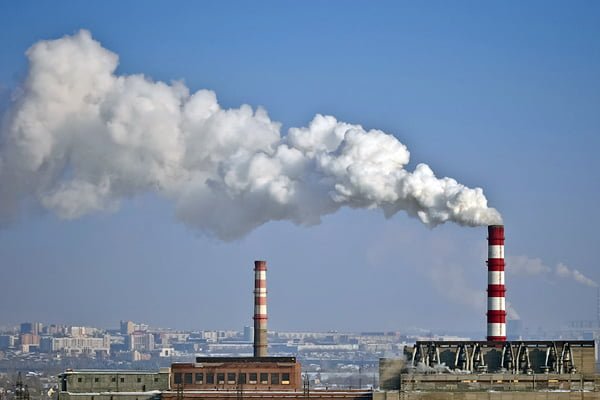
Moldova to have new high-efficiency cogeneration plant by 2030
The capital of Moldova will benefit from a high-performance natural gas cogeneration plant, with an electrical capacity of about 250 MW and a thermal capacity of approximately 180 MW, which is to be built on the territory of CET Source-1 by 2030. The project is part of the second Thermal Energy Supply System Efficiency Improvement Program (PIESACET-2), financed by the World Bank.
According to the Ministry of Energy, the new plant will also include a thermal energy storage installation with a capacity of 1,200 MWh, meant to operate on natural gas, but with the possibility of also using hydrogen in the long run. At the same time, the feasibility study recommends the integration of renewable sources – solar collectors, heat pumps, waste-to-energy conversion and electric boilers – to ensure efficiency and sustainability in the provision of thermal energy and hot water to consumers in the municipality.
International experts who conducted the feasibility study analyzed Termoelectrica's present infrastructure, the financial situation of the enterprise, energy demand for the next 25 years, as well as more technical options. The identified solution aims to enhance efficiency, reduce environmental impact and strengthen the energy security of Moldova.
The modernization process is already initiated: CET Source-2, the oldest plant in Chisinau, built in the 1950s-1960s, is to be decommissioned as soon as two new natural gas cogeneration plants, with a total capacity of at least 55 MW electric and 50 MW thermal, which are also part of the PIESACET-2 programme, are put into operation.
The centralized thermal energy supply system (SACET) from Chisinau ensures the provision of heat and hot water for a large part of the Moldovan capital's residents. The most important production units are CET Source-1 and CET Sorce-2, but their equipment, put into operation during the 1950s–1980s, has surpassed its operational lifetime. The modernization and construction of new plants represent an essential step for the energy security of Moldova, the integration of renewable energy sources and the reduction of carbon dioxide emissions, in line with the energy sector's decarbonization objectives.
Bulgaria - sixth most important economic partner of Moldova in EU
Moldova and Ukraine extend bilateral and transit transport liberalization agreement
Another 9,500 families to receive vouchers for purchasing new appliances
Three investors from localities in Security Zone to build wind farms
Energy Minister: Energocom not to assume Moldovagaz's financial deviations
Airline launches first and only direct flight from Moldova to Bulgaria
Deputy Prime Minister: Opening of Moldovan market for EU animal-origin products to be gradual and balanced
INTERVIEW MOLDPRES // Deputy Prime Minister: Our goal - transition from consumer economy to modern, competitive, export-oriented one, deeply connected to European market
Moldovan products stars at first edition of Local Product national exhibition, held in Chișinău on 22-24 August
Moldovan president says education Moldova's shield, first line of country's defense
Deputy Prime Minister, UNDP Moldova Head discussed support projects for country reintegration and community development
PHOTO GALLERY // Teachers' Forum held in Chișinău
Moldova's energy regulatory agency says Moldovagaz company to deliver natural gas to Transnistrian region till late March 2026
Moldovan president's adviser refers to reverse effect of Kremlin's propaganda, sweater worn by Russian foreign affairs minister in Alaska
Moldova to have new high-efficiency cogeneration plant by 2030
Moldovan president says resistance to Russian pressure makes Moldova pillar of stability
VIDEO // Police patrol officers of Moldova equipped with tablets, mobile printers for drafting reports
PHOTO GALLERY // New Constitutional Court judges take oath in parliament, in presence of Moldova's president, parliament speaker
PM at exhibition says Moldova grows through people united by care for community, children's future
Moldovan president meets group of pupils Gagauz Autonomy, Taraclia district, participants in Romanian language camp in Iasi
PHOTO GALLERY // In Safety on Vacation - exhibition staged on Great National Assembly Square
Court of Appeal sides with Moldova's Central Electoral Commission: three parties affiliated with convict Ilan Shor have no right to participate in elections
Moldovan president says at 2025 Diaspora Congress: 'We were all born in Moldova and carry Moldova in our hearts wherever we are'
Moldova's National Commission of Financial Market warns about fraudulent cryptocurrency schemes promoted on WhatsApp, Telegram
Moldova's Central Electoral Commission receives documents, subscription lists submitted by potential independent candidate for parliamentary elections


